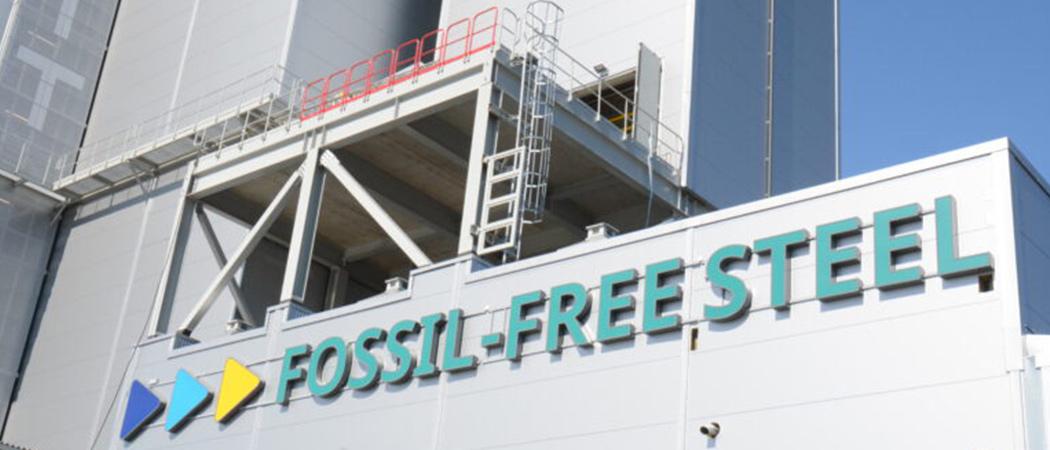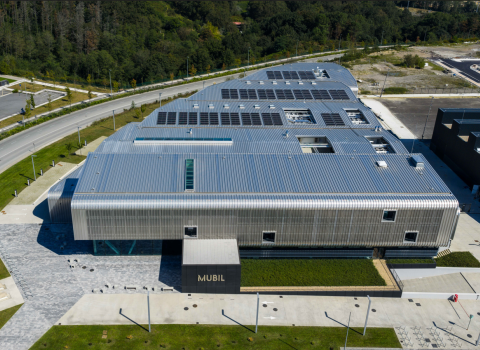Thirty-five projects covered by the funding will help build infrastructure and assist industry in adapting processes to use this form of energy

Photo: hybritdevelopment.se
The European Commission has approved up to €5.2 billion in state aid for the hydrogen Hy2Use project, as part of its support for the development of a low carbon hydrogen economy and to reduce dependence on Russian natural gas.
Hy2Use is an Important Project of Common European Interest (IPCEI), for which the Commission temporarily allows state aid to avoid market failure in strategic or risky sectors. It is the second of its kind in the hydrogen value chain, following the Hy2Tech project approved by in July.
The initiative includes 35 projects at 29 companies, to build infrastructure for the production, storage and transport of hydrogen, and for the development of hydrogen applications for energy-intensive industries, such as steel, cement and glass.
Within the scope of Hy2Use, the Commission wants to promote new electrolysis capacity of around 3.5 gigawatts, translating into an output of some 340,000 tons of renewable and low-carbon hydrogen per year. At the same time, it hopes to mobilise an additional €7 billion in private investment, to support the renewable hydrogen industry in scaling up.
Among the projects, French Engie and TotalEnergies will build a 120 megawatt electrolyser powered mainly by renewables. The Swedish company Hybrit will develop technology to replace the use of coal and coke in steel production with renewable hydrogen.
"Hydrogen can be a game changer for Europe. It is key in diversifying our energy sources and helping us reduce our dependency on Russian gas. We need to bring this niche market to scale," said European Commission president Ursula von der Leyen.
In her state of the union speech last week, von der Leyen announced the creation of a Hydrogen Bank, which will have €3 billion funding to guarantee the purchase of hydrogen on the EU market.
Climate-neutral target
Although increasing production of green hydrogen through electrolysis of water, using energy from renewable sources, was already on the agenda, the need to develop this energy source has become more pressing following interruptions of supplies of natural gas and the huge hike in prices following Russia's invasion of Ukraine.
At the same time, there is a drive to reduce fossil fuel dependency and speed up emission reductions, in line with the Green Deal, the EU Hydrogen Strategy and the REPowerEU Plan.
"Developing technologies for low carbon and, in particular, green hydrogen, and building the necessary infrastructure for its deployment, will take us one step closer to making Europe the first climate-neutral continent by 2050," said competition commissioner Margrethe Vestager.
The two IPCEI project will underpin first generation large-scale hydrogen industrial projects in Europe, said Thierry Breton, commissioner for the internal market. “Now is the time to roll out our technologies to Europe's factory floors,” he said.
The initiative was welcomed by the industry association Hydrogen Europe. CEO Jorgo Chatzimarkakis said he is "confident that today's IPCEI announcement will help mobilise additional private and public funding for the scale up of renewable hydrogen production and use in the industrial sector."
Hy2Use was drawn up by Austria, Belgium, Denmark, Finland, France, Greece, Italy, Netherlands, Poland, Portugal, Slovakia, Spain and Sweden, and also includes two Norwegian projects.





 A unique international forum for public research organisations and companies to connect their external engagement with strategic interests around their R&D system.
A unique international forum for public research organisations and companies to connect their external engagement with strategic interests around their R&D system.